Politicon.co
Diaspora impact on Canadian policy: the case of the 2020 Karabakh War
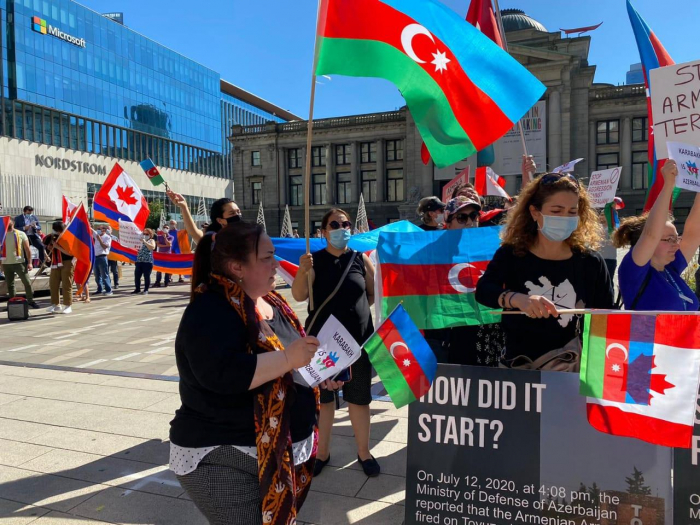
Abstract
This paper explores the activities of the Azerbaijani diaspora in Canada during and after the Second Karabakh War of 2020, with the aim of assessing the extent to which these efforts influenced Canadian foreign policy toward Azerbaijan. It begins by providing a historical and demographic overview of the Azerbaijani community in Canada to contextualize the diaspora’s reach and accomplishments prior to the conflict. The study then examines the diaspora’s political activism and humanitarian initiatives during and after the war, evaluating their effectiveness in raising awareness about Azerbaijan and attempting to shift Canadian policy in its favor.
Given Canada’s long-standing position of neutrality in its relations with Azerbaijan, any effort to reorient foreign policy poses significant challenges. These challenges are further compounded by the influence of a well-established Armenian diaspora in Canada, which actively advocates for Armenia’s interests. As such, this paper considers the Azerbaijani diaspora’s actions within the broader context of a competitive diasporic dynamic.
The analysis also highlights the strategic use of social media by Azerbaijani-Canadian activists to shape public opinion and bring attention to the conflict. Finally, the paper assesses the degree of the diaspora’s integration into Canadian society as of 2023 and considers how the Nagorno-Karabakh conflict has contributed to the community’s visibility and civic engagement in Canada.
Demographics and history
Although Azerbaijani immigration to Canada dates back to before 1980, Azerbaijanis were first officially recorded in the 2001 Census, which reported 1,445 individuals of Azerbaijani origin residing in the country.[1] By 2021, this number had grown significantly, with the largest Azerbaijani populations found in Ontario (5,910) and British Columbia (1,665).[2] In contrast, smaller communities existed in provinces such as New Brunswick (25 individuals) and Prince Edward Island (20 individuals). Given these demographic concentrations, it is unsurprising that Toronto—the capital of Ontario—also emerged as the political and cultural hub of the Azerbaijani diaspora in Canada.
The first organization established by the Azerbaijani diaspora, in 2003, was the Tabriz Azerbaijani Music & Dance Ensemble[3] with the aim to introduce and spread Azerbaijani music and dances nationwide. In 2005, two more organizations were founded: the Alberta Azerbaijani Cultural Society (ALACS)[4] which aims to connect individuals interested in Azerbaijani culture, history, language, and traditions while fostering ties between Azerbaijani and Canadian communities; and the Azerbaijani Women’s Support Centre (AWSC)[5], which is dedicated to empowering women through community engagement, resources, and various cultural and educational activities, resources, and social, educational, and cultural activities. Another significant organization, the Azerbaijan Cultural Society of Edmonton (AzCSE),[6] was founded in 2012 with a mission similar to ALACS—striving to “gather all Edmontonians who are interested in Azerbaijan’s culture, dances, music, foods, and so on.”
While these organizations have played a crucial role in establishing a visible and active Azerbaijani cultural presence in Canada, their influence on Canadian political discourse remained limited until recently. It was not until 2020—amid the Second Karabakh War—that the Azerbaijani diaspora began to make political inroads with the establishment of the Network of Azerbaijani Canadians, a group formed with the explicit aim of advocating for Azerbaijan’s interests on the Canadian stage.[7]
Political Activism
The Network of Azerbaijani Canadians (NAC) emerged as a unified political voice for the Azerbaijani diaspora during the Second Karabakh War in 2020. From the outbreak of hostilities in late September until the ceasefire in November, NAC maintained active engagement with Canadian policymakers, advocating for Azerbaijan’s position in the conflict and urging the Canadian government to support efforts to end the violence.
NAC’s first formal political initiative occurred on September 28, 2020, when it addressed an open letter[8] to Prime Minister Justin Trudeau, calling on him to “stop Armenian occupation of Azerbaijani lands and withdraw from the occupied territories.” That same day, a similar letter[9] was sent to then-Minister of Foreign Affairs François-Philippe Champagne, urging him to express “express Canada’s concern on Armenian aggression and occupation.”
On October 1, NAC Executive Director Ismayil Alakbarov held a phone meeting with Conservative Shadow Minister of Foreign Affairs Michael Chong[10], during which he conveyed the Azerbaijani-Canadian community’s concerns regarding Armenian aggression and the shelling of civilian settlements. Throughout October, NAC continued its diplomatic outreach, holding meetings with key officials including Jamie Schmale[11], Chair of the Canada-Azerbaijan Friendship Group; Senator Salma Ataullahjan[12]; Rob Oliphant[13], Parliamentary Secretary to the Foreign Affairs Minister; and Omar Alghabra[14], Parliamentary Secretary to the Prime Minister. During these engagements, NAC representatives presented Azerbaijan’s perspective on the conflict and urged Canadian officials to raise the issue in Parliament and encourage Armenia’s withdrawal from the occupied territories.
In parallel with these diplomatic efforts, NAC sought to raise public awareness and galvanize community support through grassroots mobilization. On October 18, 2020, the organization helped coordinate a protest rally[15] in downtown Toronto, drawing approximately 2,500 Azerbaijani Canadians who marched from Yonge and College Streets to Nathan Phillips Square. The demonstration aimed to protest Armenia’s occupation of Azerbaijani lands and demand international attention to the conflict. The event received coverage in the Toronto Star, one of Canada’s most widely read newspapers. According to News Media Canada, the Toronto Star, published by Torstar Corporation, ranked as the second-largest newspaper in Canada in 2020, with a total circulation of over 2.15 million[16]. While the rally may not have significantly influenced government policy, it succeeded in amplifying awareness of the Nagorno-Karabakh conflict among the broader Canadian public.
Humanitarian Initiatives
The Azerbaijani diaspora launched several humanitarian initiatives during and after the 2020 Nagorno-Karabakh conflict, primarily led by the Alov Foundation[17], a charity advancing the philanthropic goals of the Azerbaijani community in Canada, and the Azerbaijani Canadian Multicultural Center (ACMC), which supports Azerbaijani cultural and community life in Canada.
On October 20, 2020, Alov Foundation and ACMC jointly established a fund[18] to support the families of fallen soldiers. By 2023, a total of 195 individuals had contributed, raising $21,211[19].
On November 18, just eight days after Azerbaijan declared victory in the conflict, Alov Foundation launched the “We Are Karabakh” campaign[20]. The initiative involved the sale of merchandise—phone cases, sweatshirts, t-shirts, stickers—with 100% of the proceeds directed toward aiding victims of the conflict.
In a parallel effort, ACMC produced commemorative pins featuring the Khari Bulbul, a flower symbolic of remembrance and mourning for fallen soldiers. The pins were sold online at $5 each[21], with $4.55 from each sale donated to the cause. A total of 45 pins were sold.


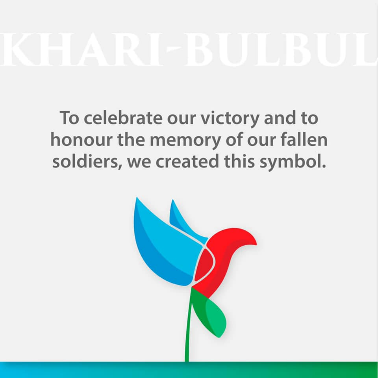
The overarching aim of these humanitarian efforts was not only to provide financial support to victims of the Karabakh conflict but also to raise awareness and encourage broader community engagement. However, the initiatives saw limited participation. By 2023, fewer than 500 people had contributed across all campaigns, and slightly over $20,000 had been raised. While no official fundraising targets were announced, these figures indicate a relatively modest level of impact, suggesting that the humanitarian efforts of the Azerbaijani diaspora fell short of their potential.
Media and Communication
In 2020, approximately 30 million Canadians were active on social media[22]. Aware of this, the Azerbaijani diaspora leveraged various platforms to disseminate information and influence public opinion during the Second Nagorno-Karabakh War. The National Azerbaijani Council (NAC) served as the primary Azerbaijani-Canadian organization coordinating these efforts, with Facebook as its main platform.
Between the outbreak of hostilities on September 27 and the ceasefire on November 10, NAC actively communicated the Azerbaijani community’s perspective on the conflict. It consistently shared facts, infographics, and narratives aimed at informing both Azerbaijani-Canadians and the broader public.
The first infographic, titled “Azerbaijan Frees Its Lands in the Face of Armenian Attacks,”[23] was posted on September 29. It described the initial stages of the war, framing the conflict as a response to Armenian military provocations, including an attack that allegedly killed five civilian members of a single Azerbaijani family. Another widely shared infographic, “Civilian Targets Under Armenian Fire (Beyond Conflict Zone),”[24] illustrated the shelling of Azerbaijani cities both near and far from the conflict zone. Cities such as Fizuli, Agdam, Tartar, Goranboy, and Agjabadi were shown to be affected despite being located close to but outside the immediate war zone. More notably, the infographic highlighted attacks on cities such as Tovuz, Shamkir, Ganja, Mingachevir, and even Khizi and Absheron—districts situated near Baku and far from the frontlines—raising concerns about the scale and intent of the strikes.
On October 7, NAC posted images of cultural sites damaged during the conflict, including the Melik Ajdar Mausoleum[25] (whose inscriptions had faded beyond legibility), the Aghdam Juma Mosque[26] (severely damaged and reportedly burned), and the Aghdam Bread Museum[27] (destroyed by a missile strike). These visuals aimed to emphasize that the conflict extended beyond military and civilian targets, also impacting Azerbaijani cultural heritage.
To assert Azerbaijan’s legal claim to the territories in question, NAC shared a post on October 16 titled “UN Security Council Resolutions.”[28] The post referenced several resolutions calling for the immediate and unconditional withdrawal of occupying forces from the Kalbajar, Aghdam, and Zangilan districts, among others. This reinforced the narrative that Azerbaijan was acting within its internationally recognized rights.
In addition to Facebook, NAC used Instagram to extend its reach. The content mirrored its Facebook posts—infographics[29], legal references[30], and historical context—but with significantly lower frequency and engagement. By August 2023, NAC had 7,400 followers on Facebook and 1,800 on Instagram.
Despite these communication efforts, NAC was unable to mobilize significant interest or support among ordinary Canadians. As of August 2023, only 7,4 thousand people[31] and 1,8 thousand people[32] are subscribed to NAC’s Facebook and Instagram pages respectively. This outcome, however, should not be solely attributed to the Azerbaijani diaspora. Generally, the Canadian public demonstrates limited awareness or engagement with issues related to the South Caucasus, including Azerbaijan. This is largely due to the minimal economic, political, and cultural ties between Canada and the region. Given this context—and the brief 44-day duration of the conflict—the Azerbaijani diaspora had little realistic opportunity to reverse longstanding trends of public disinterest.
Impact on Canadian Foreign Policy
To assess the impact of the Azerbaijani diaspora on Canadian foreign policy during and after the 2020 Nagorno-Karabakh War, it is essential to first understand the nature of bilateral relations between Azerbaijan and Canada since Azerbaijan gained independence on August 30, 1991[33]. Canada recognized Azerbaijan’s independence in December 1991, and formal diplomatic relations were established in August 1992[34].
Until 2020, Canada maintained a neutral and balanced stance toward Azerbaijan, refraining from taking clear sides in the country's political matters. This neutrality persisted during the Second Nagorno-Karabakh War in 2020, when Canada called on both Armenia and Azerbaijan to cease hostilities without assigning blame to either party[35]. Since the war, Canadian foreign policy toward Azerbaijan has remained consistent, with no notable shift in support or criticism.
At first glance, the Azerbaijani diaspora’s advocacy during and after the war may appear to have had little tangible impact, as it did not result in a discernible tilt in Canada’s foreign policy toward favoring Azerbaijan. However, any assessment of the diaspora’s effectiveness must consider the parallel efforts of the Armenian diaspora in Canada, Azerbaijan’s counterpart and rival in the conflict.
During the war, the Armenian diaspora was highly active, launching a coordinated media and political campaign aimed at discrediting Azerbaijan and portraying it as the aggressor. Notably, these efforts also targeted Turkey, Azerbaijan’s closest ally. For example, on October 9, 2020, Toronto Star published an op-ed by Armenian author Anahit Harutyunyan titled “Armenia calls on Canada to pressure its NATO ally Turkey.”[36] The article accused Azerbaijan of using illegal weaponry to shell civilian areas and religious sites far from the frontlines. It also alleged the involvement of Turkish military officials and Syrian mercenaries in support of Azerbaijan and framed Armenia as the party seeking peaceful resolution while portraying Azerbaijan as committed to military aggression and exclusionary policies.
Similarly, on October 13, 2020, CBC News published an article titled “Armenian Canadians call on Ottawa to act on Nagorno-Karabakh conflict.”[37] The piece featured interviews with the resident of Toronto Talar Chichmanian, who claimed that the NK conflict, which was “fueled partly by Turkey” will “lead to another genocide,” and that “Turkey is sending arms and Syrian mercenaries to help Azerbaijan.”. Sevag Belian, Executive Director of the Armenian National Committee of Canada, was quoted as saying that unless Azerbaijan and Turkey were held accountable, they would continue "committing their crimes with impunity."
The strength of Armenian diaspora advocacy was exemplified by the decision of the Canadian city of Laval to symbolically recognize the independence of the self-proclaimed “Republic of Artsakh” on November 5, 2020[38]—a move with no legal weight but symbolic political significance.
Despite this pressure, Canada’s official foreign policy remained unchanged, continuing its balanced approach toward both Armenia and Azerbaijan. This suggests that while diaspora advocacy may influence public discourse and local political gestures, it does not necessarily alter national foreign policy, which is shaped by a broader set of considerations, including international law, geopolitical interests, and diplomatic obligations.
Nevertheless, the Azerbaijani diaspora in Canada played a critical role during this period. While it may not have swayed Canadian foreign policy in Azerbaijan’s favor, it provided timely and fact-based information to policymakers and the public, serving as a counterweight to the Armenian diaspora’s narrative. In doing so, it contributed to preserving a degree of balance in public perception and ensured that Azerbaijan’s position was represented in the Canadian discourse during a highly polarized and emotional conflict.
Integration and Identity
As previously discussed, the Azerbaijani diaspora has achieved a significant degree of cultural integration within Canadian society, thanks in part to the work of organizations such as the Tabriz Azerbaijani Music and Dance Ensemble, the Alberta Azerbaijani Cultural Society, and others. In recent years, Azerbaijan has gained increased political visibility in Canada, largely due to the coordinated efforts of the Azerbaijani diaspora under the leadership of the Network of Azerbaijani Canadians (NAC).
Following the 2020 Nagorno-Karabakh conflict, the Azerbaijani diaspora continued its engagement with Canadian institutions. A notable example of this is the meeting held on April 6, 2023, between Fuad Muradov, Chairman of the State Committee on Work with Diaspora of the Republic of Azerbaijan, and Robert Oliphant, Parliamentary Secretary to the Minister of Foreign Affairs of Canada[39]. During the meeting, Oliphant “highly appreciated the integration of the Azerbaijani diaspora into the Canadian society and told that he “positively assessed the works done by Azerbaijani community in Canada for raising the image of their historical homeland.” Moreover, Oliphant “expressed hope for the further development of the bilateral relations.”
Further demonstrating the diaspora's growing political involvement, members of the Azerbaijani community in Canada were invited to participate in a session of the Canadian Parliament discussing the situation on the Lachin Road[40]. According to NAC Chairman Dmitriy Kirillov, this invitation signified a milestone in the political recognition of the Azerbaijani diaspora. Participation in an official parliamentary session reflects the increasing legitimacy and influence of the community within Canadian political discourse.
These developments signal that the Azerbaijani diaspora in Canada is making meaningful progress toward full political and cultural integration. Should this trajectory continue, it is plausible that remaining barriers will be gradually eliminated, positioning the Azerbaijani community as a fully integrated and equal member of Canadian society. In such a scenario, Azerbaijan’s prospects for influencing Canadian foreign policy in its favor—particularly in matters related to the South Caucasus—may significantly improve in the future.
Conclusion
This essay has demonstrated that, despite Canada’s continued neutrality during and after the 2020 Nagorno-Karabakh War, the Azerbaijani diaspora has made notable progress within the Canadian political landscape. During the conflict, the Network of Azerbaijani Canadians (NAC) established meaningful connections with several prominent members of the Canadian government. Through meetings with parliamentarians, the diaspora succeeded in conveying accurate information about the war—emphasizing that Azerbaijan was defending its internationally recognized territories rather than attempting to annex Armenian land.
However, not all of the diaspora’s efforts yielded the desired outcomes. Humanitarian initiatives and social media campaigns—primarily aimed at mobilizing public support for Azerbaijan—struggled to gain traction. This lack of impact was largely attributable to the limited awareness and general disinterest among the Canadian public in South Caucasus affairs, rather than any deficiencies in the diaspora’s efforts.
Despite this, the Azerbaijani diaspora played a crucial role in countering the influence of the Armenian diaspora, which actively disseminated disinformation through major Canadian media outlets such as CBC and organized anti-Azerbaijan demonstrations. The fact that Canada maintained its neutral stance in the face of such pressure suggests that the Azerbaijani diaspora was successful in balancing the narrative and ensuring that Canadian policymakers received factual and nuanced information.
Of course, broader geopolitical dynamics and Canada’s international obligations undoubtedly played a significant role in shaping its foreign policy. Nonetheless, the Azerbaijani diaspora’s activities contributed meaningfully to Canada’s balanced approach during the conflict. Their engagement has continued in the post-war period, culminating in praise from Parliamentary Secretary Robert Oliphant in 2023 for the diaspora’s integration and its positive contributions to Canadian society.
More significantly, the invitation extended to Azerbaijani community members to participate in a Canadian parliamentary session on the Lachin Road issue highlights the diaspora’s growing political relevance. This progress suggests that, over time, Azerbaijani Canadians will continue to integrate further and take on more active roles in political and civic life. As this integration deepens, it is likely that Canadian foreign policy may gradually shift in favor of Azerbaijan in future regional matters.
[1] “Ethnic Origin (232), Sex (3) and Single and Multiple Responses (3) for Population, for Canada, Provinces, Territories, Census Metropolitan Areas and Census Agglomerations, 2001 Census - 20% Sample Data.” 2001 Census Topic-based tabulations. Statistics Canada, 2001, https://www12.statcan.gc.ca/english/census01/products/standard/themes/Rp-eng.cfm?LANG=E&APATH=7&DETAIL=0&DIM=0&FL=E&FREE=0&GC=0&GID=0&GK=0&GRP=1&PID=62911&PRID=0&PTYPE=55430,53293,55440,55496,71090&S=0&SHOWALL=0&SUB=0&Temporal=2001&THEME=0&VID=0&VNAMEE=Ethnic%20Origin%20%28232%29&VNAMEF=Origine%20ethnique%20%28232%29.
[2] “Profile table.” Census Profile, 2021 Census of Population. Statistics Canada, 2021, https://www12.statcan.gc.ca/census-recensement/2021/dp- pd/prof/details/page.cfm?Lang=E&DGUIDList=2021A000011124&GENDERList=1&STATISTICList=1&HEADERList=0&SearchText=Canada.
[3] “Tabriz Music Ensemble.” Tirgan, 2015, https://www.tirgan.ca/b/2015/event/tabriz-music-ensemble.html.
[4] “Alberta Azerbaijani Cultural Society – Calgary, Canada.” Azeri America, 1 January 2015, https://azeriamericanews.com/2015/01/01/alacs_canada/.
[5] “About us.” Azerbaijani Women’s Support Centre (AWSC), https://azerwomen.ca/about-us.
[6] “About.” Azerbaijan Cultural Society of Edmonton, https://www.azcse.com/post/5621/about.
[7] “We Are N.A.C.” Network of Azerbaijani Canadians, https://azcanet.ca/menu/we-are-nac.
[8] Network of Azerbaijani Canadians. “War Escalation in Caucasus Region.” Facebook, 28 Sep. 2020, 12:01 a. m., https://www.facebook.com/azcanet/photos/pb.100064817797595.-2207520000./100155968528985/?type=3.
[9] Network of Azerbaijani Canadians. “War Escalation in Caucasus Region,” edited. Facebook, 28 Sep. 2020, 10:50 p. m., https://www.facebook.com/photo/?fbid=100437291834186&set=pb.100064817797595.-2207520000.
[10] Network of Azerbaijani Canadians. “NAC urged Conservatives to condemn Armenian occupation.” Facebook, 1 Oct. 2020, 7:55 p. m., https://www.facebook.com/photo/?fbid=102225034988745&set=pb.100064817797595.-2207520000.
[11] Network of Azerbaijani Canadians. “The Network of Azerbaijani Canadians meets with Jamie Schmale.” Facebook, 5 Oct. 2020, 10:03 a. m., https://www.facebook.com/photo/?fbid=104679124743336&set=pb.100064817797595.-2207520000.
[12] Network of Azerbaijani Canadians. The Network of Azerbaijani Canadians meets with Salma Allautahjan. Facebook, 9 Oct. 2020, 5:27 a. m., https://www.facebook.com/azcanet/photos/pb.100064817797595.-2207520000./107891021088813/?type=3.
[13] Network of Azerbaijani Canadians. The Network of Azerbaijani Canadians calls Rob Oliphant. Facebook, 9 Oct. 2020, 04:32 a. m., https://www.facebook.com/azcanet/photos/pb.100064817797595.-2207520000./107859707758611/?type=3.
[14] Network of Azerbaijani Canadians. The Network of Azerbaijani Canadians meets with Omar Alghabra. Facebook, 20 Oct. 2020, 7:24 p. m., https://www.facebook.com/photo/?fbid=120206589857256&set=pb.100064817797595.-2207520000.
[15] Xavier Carter, Breanna. “Azerbaijani Canadians march in downtown Toronto rally.” The Hamilton Spectator, 18 Oct. 2020, https://www.thespec.com/news/gta/azerbaijani-canadians-march-in-downtown-toronto-rally/article_5f35ae77-3534-5766-908b-b33e6c88bedf.html.
[16] “Ownership: Editions and Circulation.” Snapshot 2020 Report. News Media Canada, 2020, https://nmc-mic.ca/wp-content/uploads/2021/03/Snapshot-2020_REPORT_Total-Industry_2021.03.17.pdf.
[17] Alov Foundation. “Intro”. Facebook, https://www.facebook.com/AlovFoundation/.
[18] Alov Foundation. Fund for the families of fallen soldiers. Facebook, 20 Oct. 2020, 8:29 p. m., https://www.facebook.com/AlovFoundation/videos/966912450457825.
[19] “Supporting victims of Karabakh War.” Azerbaijani Canadian Multicultural Center, https://azerbaijan.ca/donate/.
[20] Alov Foundation. “We Are Karabakh” project. Facebook, 18 Nov. 2020, 12:28 p. m., https://www.facebook.com/AlovFoundation/posts/pfbid0VJQjyGPifdWCJKn7htLWfP2WTdWceDrmzgcRM9ucB7i6c2qWfZcgrEjBQgzWYWR7l.
[21] “Shop&Donate.” Azerbaijani Canadian Multicultural Center, https://azerbaijan.ca/shopdonate/.
[22] Jo Dixon, Stacy. “Number of social media users in Canada from 2019 to 2028 (in millions).” Statista, 21 March 2020, https://www.statista.com/statistics/260710/number-of-social-network-users-in-canada/.
[23] Network of Azerbaijani Canadians. “Azerbaijan frees its lands in the face of Armenian attacks.” Facebook, 29 Sep. 2020, 12:01 a. m., https://www.facebook.com/azcanet/posts/pfbid02rw1qbXXaBbb27qRxBfQyKbtxUubzKAhgwi2M6CE82vUpG9EVmUyXUKqPxrLwSCpWl.
[24] Network of Azerbaijani Canadians. “Civilian targets under Armenian fire (beyond conflict zone).” Facebook, 5 Oct. 2020, 1:02 p. m., https://www.facebook.com/azcanet/photos/pb.100064817797595.-2207520000./104774081400507/?type=3.
[25] Network of Azerbaijani Canadians. “Melik Ajdar Mausoleum.” Facebook, 7 Oct. 2020, 9:24 p. m., https://www.facebook.com/photo/?fbid=106711477873434&set=pb.100064817797595.-2207520000.
[26] Network of Azerbaijani Canadians. “Aghdam Juma Mosque.” Facebook, 7 Oct. 2020, 9:24 p. m., https://www.facebook.com/photo/?fbid=106711484540100&set=pb.100064817797595.-2207520000.
[27] Network of Azerbaijani Canadians. “Aghdam Bread Museum.” Facebook, 7 Oct. 2020, 9:24 p. m., https://www.facebook.com/photo/?fbid=106711571206758&set=pb.100064817797595.-2207520000.
[28] Network of Azerbaijani Canadians. “UN Security Council Resolutions.” Facebook, 16 Oct. 2020, 8:16 a. m., https://www.facebook.com/azcanet/photos/pb.100064817797595.-2207520000./117584796786102/?type=3.
[29] Network of Azerbaijani Canadians [@azcanet]. Azerbaijan’s civilian casualties. Instagram, 16 Oct. 2020, https://www.instagram.com/p/CGYLiO1Fjue/.
[30] Network of Azerbaijani Canadians [@azcanet]. “UN Security Council Resolutions.” Instagram, 16 Oct. 2020, https://www.instagram.com/p/CGzqt0YjuYh/.
[31] Network of Azerbaijani Canadians. Facebook, https://www.facebook.com/azcanet.
[32] Network of Azerbaijani Canadians [@azcanet]. Instagram, https://www.instagram.com/azcanet/.
[33] Allworth, Edward , Silaev, Evgeny Dmitrievich , Suny, Ronald Grigor and Howe, G. Melvyn. "Azerbaijan". Encyclopedia Britannica, 9 Aug. 2023, https://www.britannica.com/place/Azerbaijan.
[34] “Bilateral Relations.” Canada-Azerbaijan relations. Government of Canada, Sep. 2022, https://www.international.gc.ca/country-pays/azerbaijan-azerbaidjan/relations.aspx?lang=eng.
[35] Global Affairs Canada. Joint Statement by Canada and the United Kingdom on the Armenia-Azerbaijan conflict. Government of Canada, 28 Sep. 2020, https://www.canada.ca/en/global-affairs/news/2020/09/joint-statement-by-canada-and-the-united-kingdom-on-the-armenia-azerbaijan-conflict.html.
[36] Harutyunyan, Anahit. “Armenia calls on Canada to pressure its NATO ally Turkey.” Toronto Star, 9 Oct. 2020, https://www.thestar.com/opinion/contributors/armenia-calls-on-canada-to-pressure-its-nato-ally-turkey/article_03391fa9-7ea6-5d6b-bd86-f89319c1cef5.html.
[37] Serebrin, Jacob. “Armenian Canadians call on Ottawa to act on Nagorno-Karabakh conflict.” CBC, 13 Oct. 2020, https://www.cbc.ca/news/politics/armenia-azerbaijan-conflict-ottawa-action-1.5759259.
[38] Barry, Martin C. “Laval passes resolution recognizing Republic of Artsakh.” The Laval News, 8 Nov. 2020, https://www.lavalnews.ca/laval-passes-resolution-recognizing-republic-of-artsakh/.
[39] “‘Chairman of the State Committee met with Canadian MFA’s parliamentary secretary and the CEO of “Pace Law Firm.”’ State Committee on Work with Diaspora of the Republic of Azerbaijan, 6 Apr. 2023, https://diaspor.gov.az/en/news-detail/komite-sedrinin-kanada-xin-in-parlament-katibi-ve-peys-huquq-firmasi-nin-rehberi-ile-gorusleri-kecirilib-2745.
[40] “Председатель NAC Рассказал об Успехах Азербайджанской Диаспоры в Канаде [NAC Chairman Spoke about the Successes of Azerbaijani Diaspora in Canada].” Youtube, uploaded by Baku TV | RU, 31 July 2023, https://www.youtube.com/watch?v=iuOrdU00zYc&t=151s.
![]()
- TAGS :


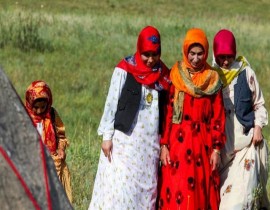
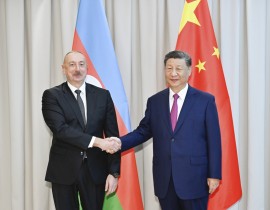
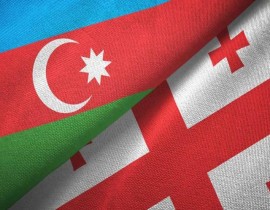
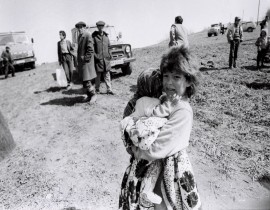
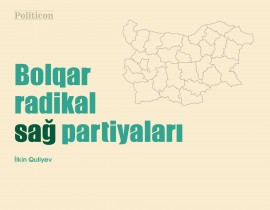
jpg-1599133320.jpg)
